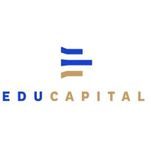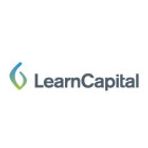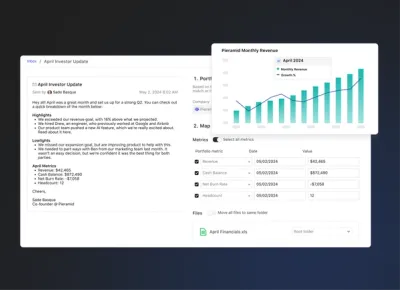

Latest Funding and Market Trends in EdTech (2023 and Beyond)
The EdTech sector presents a landscape of both challenges and opportunities. Founders need to be agile and adaptable, with a focus on the key growth areas of AI, mobile learning, and data analytics. Despite the current downturn in venture capital funding, the sector's long-term growth prospects remain promising, driven by technological advancements and a global push towards accessible, quality education.
Funding and Investment Trends
In 2023, the EdTech sector is witnessing a notable decline in venture capital funding. Investments in the second quarter stood at $707 million, contributing to a total of about $1.8 billion in the first half of the year. This represents a significant 58% drop compared to the same period in the previous year. The forecast for total VC funding in 2023 is projected to be around $3.5 billion, a decrease from $10.6 billion in 2022 and far from the record $20.8 billion in 2021.

The current investment climate has moved away from the "golden age of mega rounds." The recent period marked the second consecutive quarter without funding rounds exceeding $100 million, known as mega rounds. This cooling trend is attributed to a shift in market conditions, including a return to in-person learning and the expiration of federal aid that had previously boosted remote learning.
Related resource: Top 18 Revolutionary EdTech Startups Redefining Education
Opportunities and Growth Prospects
Despite the current slowdown, the long-term outlook for EdTech remains robust. Most forecasters anticipate continued substantial growth in the sector throughout the rest of this decade. This optimism is rooted in the belief that technology will continue to be a significant driver of global growth in education by reducing costs and expanding access to learning.
AI, mobile learning, tutoring, and data analytics are emerging as focal points in the EdTech sector. Innovations in these areas are expected to drive growth, with AI becoming a crucial component for startups. Mobile learning is also gaining prominence due to its widespread accessibility. Tutoring services are evolving, often combining AI, mobile technology, virtual/augmented reality, and gamification to offer more engaging and personalized learning experiences.
Implications for EdTech Founders
- Navigating the Changing Landscape: EdTech founders must adapt to the evolving investment landscape, which may involve seeking smaller and more frequent rounds of funding. With the shift in investment focus, there is an increased emphasis on sectors outside of K-12, particularly in areas related to training and worker upskilling.
- Leveraging Emerging Technologies: Founders should focus on leveraging emerging technologies like AI and mobile learning to create innovative solutions. There is a growing market for platforms that use big data and analytics to personalize learning. Additionally, developing solutions in the tutoring space, particularly those that address gaps in K-12 education, can be a fruitful direction.
- Exploring Alternative Funding Sources: With the decline in traditional venture investments, it's crucial for startups to explore alternative forms of funding. This could include government funding, foundation-led philanthropic investments, and other non-traditional financing options. Diversifying funding sources can help sustain innovation and support the growth of new ideas.

Emerging Technologies in EdTech
For EdTech founders, emerging technologies offer a plethora of opportunities to innovate and create impactful educational solutions. As AI and IoT continue to evolve, they will undoubtedly unveil new possibilities for enhancing learning experiences and educational outcomes. Embracing these technologies and integrating them into EdTech solutions will be key to addressing the evolving needs of learners and educators alike.
AI-Driven Innovations
- Personalized Learning Experiences: AI's ability to tailor educational content based on individual learning styles and needs is more advanced than ever. Using complex algorithms, AI can analyze student performance data to create a uniquely personalized learning journey. This not only enhances student engagement but also improves learning outcomes.
- Intelligent Assessment Tools: AI is revolutionizing the way assessments are conducted. With advancements in natural language processing and machine learning, AI systems can now grade open-ended responses, provide real-time feedback, and even identify areas where students might need additional support.
- Automated Content Generation: AI is being used to develop educational content, from generating practice questions to creating interactive learning modules. This technology allows for the rapid creation of high-quality, dynamic content that can adapt to curriculum changes and evolving educational standards.
- AI Tutors and Assistants: AI-powered tutoring systems are becoming more sophisticated, offering students personalized guidance and support. These virtual tutors can answer questions, assist with problem-solving, and provide explanations, much like a human tutor but with the added benefit of being available 24/7.
IoT in Education
- Smart Classroom Technologies: IoT is transforming traditional classrooms into smart learning environments. This includes the use of smart boards, IoT-enabled lab equipment, and connected devices that enhance interactive learning and provide real-time data to both students and teachers.
- Enhanced Learning Analytics: now it’s possible to gather extensive data on student engagement and classroom dynamics. This information can be used to optimize teaching strategies, classroom layouts, and even individualize student learning plans based on engagement levels and performance.
- Improved Resource Management: In educational institutions, IoT can help manage resources more efficiently, from tracking equipment usage to monitoring energy consumption. This not only reduces operational costs but also contributes to creating a more sustainable learning environment.

Future Outlook: Trends and Predictions in EdTech
The future of EdTech is marked by a landscape of continuous innovation and adaptation. For EdTech founders, staying abreast of these trends and predictions is crucial to developing solutions that meet the evolving needs of learners and educators. By embracing these changes and anticipating future needs, EdTech companies can not only contribute to the advancement of education but also thrive in a dynamic and growing market.
Key Trends Shaping the Future
- Increased Adoption of AI and Machine Learning: AI and ML will continue to be at the forefront of EdTech innovation. They are expected to drive further personalization in learning, provide more efficient assessment tools, and enable the creation of dynamic, responsive educational content.
- Growth in Virtual and Augmented Reality: VR and AR are anticipated to gain more traction in the educational sector. These technologies will provide immersive and interactive learning experiences, making complex concepts more accessible and engaging.
- Rise of Microlearning and Bite-Sized Content: The trend towards microlearning is expected to grow. Short, focused learning sessions that fit into busy schedules are increasingly appealing, especially for continuous adult education and corporate training.
- Focus on Lifelong Learning and Upskilling: As job roles evolve rapidly, there will be a heightened focus on lifelong learning and upskilling. EdTech platforms that cater to professional development and career transitions will likely see increased demand.
- Expansion of Gamification in Education: Gamification will continue to be a key element in engaging learners. By making learning more fun and interactive, EdTech solutions can improve retention and motivation across various age groups and educational contexts.
- Greater Emphasis on Inclusive and Accessible Education: There will be a growing focus on making education more inclusive and accessible. This includes developing solutions for learners with disabilities and those in underserved communities.
Predictions for Growth and Evolution
- Market Expansion: The global EdTech market is projected to continue expanding, driven by technological advancements and the increasing acceptance of digital learning solutions.
- Diversification of EdTech Solutions: Expect to see a broader range of EdTech products catering to different educational needs, including early childhood education, K-12, higher education, and adult learning.
- Integration with Traditional Education Systems: EdTech will increasingly complement and integrate with traditional education systems, bridging gaps and enhancing the overall learning experience.
- Adoption in Emerging Markets: Emerging markets will likely see a surge in EdTech adoption as internet penetration increases and digital devices become more affordable.
- Investment Shifts: While venture capital funding may fluctuate, investment in EdTech is expected to remain strong, with a shift towards more strategic and impact-focused funding.
Key Players
“In the future, entrepreneurs will sell knowledge over products.”- Ankur Nagpal founder of Teachable

- Pre-K Education: Learn With Homer– Raised a total of $93M and was then acquired.
- K-12 Education: Platforms like Kahoot! and Quizlet have brought an element of gamification to K-12 classrooms, making learning interactive and enjoyable. Meanwhile, EdTech platforms like Google Classroom and Canvas help manage classroom tasks and streamline communication between teachers, students, and parents. Other big players include Khan Academy a free world-class education platform and GoStudent for 1 on 1 tutoring.
- Higher Education: Tools like Coursera, edX, and Udemy are revolutionizing higher education. These platforms provide a wide range of courses from universities around the world, giving students access to quality education regardless of location. They also offer micro-credentials, which are becoming increasingly recognized by employers.
- Continuing Education and Adult Upskilling: LinkedIn Learning, Coursera provide professionals the opportunity to learn new skills, stay current in their field, and even transition to new careers. They offer a myriad of courses in fields ranging from business and tech to creative arts.
- Specialized Learning: Companies like Rosetta Stone and Duolingo make language learning accessible to everyone, while platforms like MasterClass provide expert-led courses in various domains, such as writing, cooking, acting, and more.
- Cohort-based Learning companies: EducateMe, Maven and and various boot camps such as LeWagon and Iron Hack for tech upskilling.
- “Microlearning” or Bite-sized Learning involves absorbing knowledge in small, digestible segments, usually less than 10 minutes in duration. This method addresses time constraints, a common hurdle for employee participation in workplace learning. It not only condenses learning periods, thus increasing student engagement but also promotes information retention through repetition. Several innovative microlearning platforms have adopted this approach some examples include GoodCourse and 7Taps.
- Companies Own Offerings: Google Classroom, Microsoft Teams for Education, and Apple’s educational resources.
In the era of lifelong learning, the market for educational technology has expanded dramatically. As technology continues to evolve and integrate into the education sector, we can expect to see even more niche EdTech platforms arise to meet the diverse needs of learners.

Unique Challenges
- Technological infrastructure, including reliable internet access, is still a hurdle in many parts of the world.
- Concerns regarding data privacy and security.
- User engagement and retention, particularly in the K-12 segment, require a fine balance between education and engagement.
Articulating Unique Value Proposition for EdTech Founders
As the EdTech marketplace starts to rapidly grow and is swarming with innovation, it is crucial for founders to effectively articulate the unique value proposition (UVP) of their startups. Your UVP is essentially the backbone of your business.
Understanding and expressing your UVP is vital, particularly in the EdTech sector. This is because educational institutions, teachers, students, and parents – the primary stakeholders in EdTech – are looking for targeted solutions to specific challenges they face in the educational landscape. Whether it’s improving learning outcomes, enhancing teacher productivity, or increasing education accessibility, the ability to distinctly show how your solution addresses these challenges can make or break your fundraising efforts.
Improving Learning Outcomes
If your EdTech solution can improve learning outcomes, demonstrate this with data from pilot studies or user testimonials, showing how your product increases knowledge retention, improves grades, or develops specific skills. Highlight unique features of your product that facilitate these improved outcomes, such as AI-powered adaptive learning paths or gamified learning experiences.
Enhancing Teacher Productivity
EdTech is not only about students but also about empowering teachers. If your product can enhance teacher productivity, illustrate how it reduces their administrative burden, automates repetitive tasks, or assists in more efficient classroom management. Show how your product can help teachers spend more time doing what they do best—teaching and mentoring students.
Increasing Education Accessibility
In a world increasingly focused on equality and inclusion, EdTech solutions that increase educational accessibility have a powerful appeal. If this is your company’s strength, show how your product helps reach underprivileged communities, accommodates students with special needs, or allows flexible learning for those who can’t attend traditional classes. Concrete examples and stories will help your audience understand the real-world impact of your solution.

EdTech Shower Thoughts
First, a little flashback to the end of 2022- the value of 30 EdTech unicorns approached $100 billion, comparable to Fortune 500 companies like General Electric and American Express (that’s pretty impressive).
- According to research, students following personalized learning approaches significantly outperform their peers. AI helps to address the challenge of high student-teacher ratios, providing customized learning experiences.
- EdTech’s reach extends beyond traditional education, with remote work enhancing its importance in professional development. Automated identification of skill gaps and intelligent resource recommendations are seen as valuable to businesses and their employees.
- The potential impact of government funding on EdTech’s growth- the trend towards technology use in education might lead to a significant portion of the available $30 billion US government funding being allocated to EdTech.
- Learning Management Systems (LMS) is incredibly important in achieving scalability in EdTech. LMS not only helps manage large classrooms but also crucially harnesses data from personalized learning platforms, enabling educators to improve content and technologists to better understand user behavior.
Resources
- EdTech VC connect profiles in our Fundraising CRM
- From Exploding Topics:
- $30B in government funding available to educators in the US
- HolonIQ: 2022 closed with 30 EdTech Unicorns around the world, collectively valued at $89B
- Accelerator- Imagine K12 (which is specifically focused on EdTech)
- Events: SXSW EDU, and Bett Show attract educators, and GSV Ventures hosts their annual ASU + GSV summit
VCs Investing in the EdTech Space
1. NewSchools Venture Fund
About: “NewSchools Venture Fund is a is a national nonprofit venture philanthropy working to reimagine public education. Since our founding, in 1998, we have invested nearly $200 million in 200 education ventures. Our investments were instrumental in the creation of nearly 470 new schools with the potential to serve more than 200,000 students, and the development of ed tech products that serve more than 60 million students and their teachers.”
Thesis: “We are the first venture philanthropy focused on K-12 education. As a nonprofit and intermediary funder, we raise charitable donations and then grant those funds to early-stage entrepreneurs who are reimagining public education. While we have a rigorous investment process, we seek educational and social returns, not financial ones.”
Stage: Pre-Seed, Seed, Series A, Growth
EdTech Notable Investments: ClassDojo, Handshake, and Uncommon Schools.
2. EduCapital

About: The largest European Edtech & Future of Work VC. Educapital invest’s in innovative European companies with the highest potential to scale and become European and global leaders.
Thesis: We invest in Entrepreneurs shaping the future of education & future of work.
Stage: Seed, Series A, Series b, Growth
EdTech Lastest Investments: Tomorrow University of Applied Sciences, Edflex, Lunii
3. Bonsal Capital
About: We support tech-enabled, mission-driven startups and funds and leverage our experience as educators, venture capitalists, and ecosystem leaders to empower you to find the resources you need, so you can better serve your end user and customer.
Thesis: Bonsal Capital is a mission-driven partnership, and supporting education has been a core driver since our founding in 1999. With decades of experience in education as investors, practitioners, and volunteers, our principals have authentically grown a partnership that seeks founders and leaders who want to make a positive impact with a product and/or service, and who keep prospective scale and sustainability at the forefront. We support the growth of companies focused on tech-enabled services in education, and we have invested in and partnered with more than 20 such companies over the past two decades, providing human and financial capital, as well as other resources, that have made a positive impact on tens of millions of end users. We believe that, by fostering education, we can make the world a better place and feel good about our place in it.
Stage: Seed, Series A, Growth
EdTech Notable Investments: Upswing, Nepris, and Everyday Labs
4. Learn Capital

About: LearnCapital is a venture capital firm focused exclusively on funding entrepreneurs with a vision for better and smarter learning.
Thesis: “We back and build rapidly scaling tech-enabled companies that tackle the world’s biggest human-centered problems and help us all reach our full potential.”
Stage: Seed, Series A, Growth
EdTech Notable Investments: Udemy, Coursera, and Chegg.

5. Emerge Education
About: LearnCapital is a venture capital firm focused exclusively on funding entrepreneurs with a vision for better and smarter learning.
Stage: Pre-Seed and Seed
EdTech Notable Investments: Tomorrow University of Applied Sciences, Edurino, and Colossyan
6. Owl Ventures
About: “Founded in 2014, Owl Ventures is the largest venture capital firm in the world focused on the education technology market with over $2 billion in assets under management. The Silicon Valley-based firm was purposely built to partner with and help scale the world’s leading education companies across the education spectrum encompassing PreK-12, higher education, future of work (career mobility/professional learning), and “EdTech+” (intersection of EdTech and other major industries such as FinTech and healthcare).”
Thesis: “We believe there is a digital revolution rapidly unfolding in education and workforce development. This revolution is creating a historic opportunity to invest in companies that are disrupting and improving the over $6 trillion global education market. The entire education and training sector is shifting rapidly as access to the internet and connected devices has flourished. Hundreds of millions of students and teachers around the world can now leverage innovative learning platforms.”
Stage: We invest in companies at all stages from seed, early, growth, and later stages, globally.
EdTech Notable Investments: MasterClass, degreed, Khan Academy, Schoology, and Knewton.
7. Reach Capital

About: Reach supports the most promising entrepreneurs developing technology solutions for challenges in early childhood, K-12, and higher education.
Thesis: “Education is a critical engine for economic mobility. Alongside health, wellbeing, career development and healthy relationships, we are interested in all ideas that empower people to learn, grow and succeed — in school, at home, for work … wherever they go.”
Stages: “early, and support you at every stage of your journey”
EdTech Notable Investments: Guild Education, Classcraft, and Merit America.
8. General Catalyst

About: General Catalyst backs exceptional entrepreneurs who are building innovative technology companies and market leading businesses, including Airbnb, BigCommerce, ClassPass, Datalogix, Datto, Demandware, Gusto (fka ZenPayroll), The Honest Company, HubSpot, KAYAK, Oscar, Snap, Stripe, and Warby Parker. The General Catalyst team leverages its broad experience to help founders build extraordinary companies. General Catalyst has offices in Cambridge, MA, Palo Alto, CA and New York City.
Thesis: General Catalyst is a venture capital firm that makes early-stage and growth equity investments.
Stages: Seed, Series A, Series B, Growth
EdTech Notable Investments: Chegg, Coursera, and Udacity.
9. Kapor Capital
About: Kapor Capital invests in early stage gap-closing tech enabled startups.
Thesis: Kapor Capital invests in tech-driven early-stage companies committed to closing gaps of access, opportunity or outcome for low-income communities and/or communities of color in the United States. Stages: Pre- Seed, Seed, Series A, Series B
Looking for Investors? Try Visible Today!
Use Visible to manage every part of your fundraising funnel with investor updates, fundraising pipelines, pitch deck sharing, and data rooms.
Raise capital, update investors, and engage your team from a single platform. Try Visible free for 14 days.
Related Resource: EdTech VC connect profiles in our Fundraising CRM





